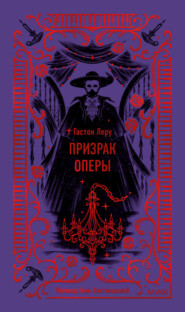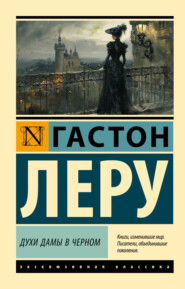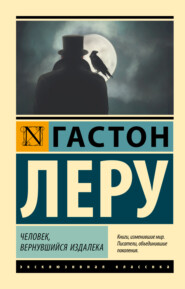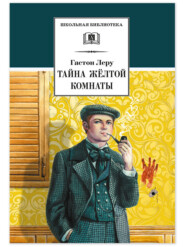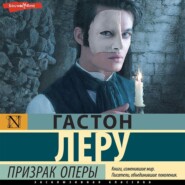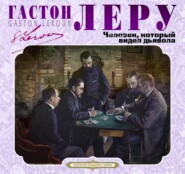По всем вопросам обращайтесь на: info@litportal.ru
(©) 2003-2025.
✖
The Bride of the Sun
Автор
Год написания книги
2018
Настройки чтения
Размер шрифта
Высота строк
Поля
Huascar’s voice reached her, slow, cadenced, and monotonous.
“Coya, thou belongest to Huayna Capac, the great King who will take thee to the House of the Sons of the Sun. We leave thee alone with him. He will lead thee through the Corridors of Night, which no living man must know, and in the temple will seat thee among the Hundred Wives. Thou must obey him, thou must rise only if he rises! Thou must obey. And remember that the serpent watches in the House of the Serpent.”
He withdrew, still facing her, with the three Guardians of the Temple, while the great crowd below flowed silently through the three doors.
All the mammaconas followed, drawing their black veils over their faces, like widows leaving a cemetery. Even the two who were also to die left her, first bending to kiss her feet, peeping shoeless from under the bat-skin robe.
Darkness was rapidly gaining the hall. Why were they leaving her alone there? What was this horror which even they dared not see? She must not rise unless he rose. Would this dead thing come to life, then, take her by the hand, and lead her into the eternal night? What of the Red Ponchos? She looked. They were still there, prostrate at the foot of the steps. The Guards of the Sacrifice, she had heard them called. They were stopping! A surge of joy filled her heart She felt less afraid now.
The Guardians of the Temple had left. Huascar had left.
Would the Red Ponchos follow? No, they did not move. She was watching them now, with her whole soul. They were still there, motionless, ready to spring to her rescue when the hall was empty, ready to carry her to the horses that must be waiting. The Dead One at all events could do nothing to prevent it.
There were only twenty Indians left in the hall now… only five… four… three.... They turned slowly at the doorway to look at her again… She sat motionless, rigid.... She must not move unless the Dead One moved.... Only the four Red Ponchos remained....
She half screamed.... They also had risen, pacing slowly toward the doors.
It could not be! They could not be deserting her! But they were going away like the others, without looking in her direction. No, she must not scream… she must wait patiently… wait for a sign. Still walking slowly, three of them had gone to the three doors, but the fourth, Dick, turned suddenly, his finger on his lips.
Forgetting Huascar’s words, Maria-Teresa half rose in her seat. There was a revolver in Dick’s fist now, and her father had vanished through one of the doors, looking to make sure that the courtyard was deserted. Then his voice gave the signal:—“Recuerda!” (Remember!) Dick dashed up the porphyry steps, Don Christobal following, while the two others remained at the doors.
“Come, Maria-Teresa! Quick!”
Dick stretched out his hands to take little Christobal, and Maria-Teresa had risen, when a terrible whistling sound filled the hall, and the two prisoners, shrieking, were hurled back into the seat by the monstrous folds of a huge serpent which seemed to spring into life about them, binding them down to the throne of Death. The serpent of the House of the Serpent had come to claim his prey.
Raising his revolver, Dick thundered at the hideous head towering above them, whistling with wide-open jaws, and tore at the coils which imprisoned his fiancée. His hands fell, not on living flesh, but on hard, cold metal; copper rings which ground one against the other, overlapped, and drew tighter. It was in vain that he and Don Christobal tore at them with furious hands.
“Look out! They are coming!” shouted Natividad from the doorway, and the hall was invaded by Indians, while the Serpent shrieked stridently, and a thousand rattles seemed to sound the alarm. The Marquis still tore at the coils that were choking his children, but Dick, hesitating a moment, dashed down the stairs. In a twinkling, the hall was full of Indians, priests, caciques, mammaconas, scores of Quichua soldiers from the train of Oviedo Runtu, who alone remained invisible.
Huascar appeared, still calm and immovable, as if this scene did not surprise him, as if nothing could surprise him. Had he known beforehand what was to have happened, he could not have given his orders more deliberately. Don Christobal, Natividad, and Uncle Francis were tied up in a trice, the latter at last alarmed by the brutality of his captors. Dick had disappeared.
“Take them away,” ordered Huascar.
Don Christobal struggled, turned and looked once again. “Maria-Teresa! Christobal!” Then he too was hurried away.
Meanwhile Huascar, more and more somber, directed the search for Dick. They hunted in vain; he had disappeared like a drop of water in the sea. Finally, Huascar gave the order to clear the hall again.
Left alone with the Guardians of the Temple, who stood caressing the serpent’s folds with their hideous little hands, the high-priest went behind the throne. In a moment, the brazen monster was silent, loosened its grip, and shrank link by link, until it vanished whence it had come.
Going to the wall, Huascar placed his hand on the coraquenque, and the massive stones rolled back; the throne shook, slipped backwards, and vanished down the Corridors of Night, taking with it the dead King, Maria-Teresa and little Christobal, both unconscious. The wall closed upon them, hiding again the secrets which only those who are ready to die may know.
The Guardians of the Temple bent their monstrous heads in obeisance before Huascar, and in their turn went out Huascar, last High-Priest of the Incas, was alone in the House of the Serpent Slowly going to the top of the porphyry steps, he sat down. His head dropped between his hands, and there he remained till dawn.
IV
Dick, clear of the House of the Serpent by what was little short of a miracle, crouched down in a niche of the palace wall, hewn out by some dead Inca hand, and there waited for Huascar throughout the night, watching the door at which he must appear. He was careless of the danger he ran, and his very boldness saved him. Not one of the passing Quichuas, dignitaries of the Interaymi, dreamed for an instant that the poor Indian wrapped in his poncho, and apparently asleep, was the sacrilegious stranger who had slipped from their clutches. The darkness, too, favored him, as it had favored his daring escape; he had merely turned his red poncho inside out, so that it looked like any other poncho, and had joined the howling crowd, stopping in it until Huascar’s order had cleared the hall.
Argue the matter as he would, the young man saw no hope. Garcia’s victory over the Federal troops at Cuzco had given the district into the hands of the Indians. The Spanish population, only an eighth of the 50,000 souls in the ancient city, had fled. Never since the Spanish Con quest had the Quichuas so completely been the masters. Garcia himself had prudently left the town, waiting for the end of the Interaymi; and the few troops he had left behind him were heart and soul with the native population, from which they had been levied, and with which they shared customs, faith and fetichism. In a word, the Cuzco was as much the home of the Incas as it had been in the heyday of their despotic rulers.
When Dick and his companions had reached the outskirts of the city they had hidden their motor in a half-deserted country inn, bribing the landlord. They had at once realized that force was out of the question. Happily, there remained Garcia’s money. The landlord, a poor half-breed who asked no better than to become rich, had listened readily, and the offer of a small fortune had set him off looking for Red Ponchos willing to betray Huascar.
He found four, the very men who were to be the Guards of the Sacrifice, in the House of the Serpent. When these men had explained their functions, the four Europeans could hardly believe their good fortune. Dick and Don Christobal were so absorbed by the idea of getting through to the prisoners somehow, that they did not stop to think how suspiciously easy their task had been. Uncle Francis, a witness of the bargain, was for once not altogether wrong when he shrugged his shoulders at their childish scheme to “take him in.”
The Red Ponchos agreed to everything, and the price was fixed, and they received half-payment. The remainder was to be handed over when the Marquis’ children were free. The traitors promised to help them escape from the sacred precincts, and moreover brought them their disguises.
Uncle Francis, chuckling covertly, accepted the part assigned to him with such readiness, showed such quiet courage in his attitude, that he reconquered at one stroke the lost esteem of both the Marquis and his nephew. Natividad, ever ready to believe anything to the discredit of an Indian, and knowing from experience how easily they were to be bought, was quite confident in the success of the expedition.
Thoroughly fooled by Huascar, they had walked into the trap, and only amazing luck had saved one of them. Where were the others now? Where was the dungeon that held them, and what was to be their fate?
Dick was waiting in the dark street before the palace, determined to shoot Huascar when he saw him. All night through, nobody came out of the House of the Serpent. At dawn, the young engineer suddenly felt a hand on his arm, and, looking up, recognized the old man to whom he had spoken at Arequipa, the father of Maria Cristina de Orellana.
“Why do you stop here?” asked the stranger. “You won’t see the procession if you do. Follow me, and I’ll show you my daughter coming out of the Corridor of Night.”
Dick stared at him. Groups of Indians were passing, all heading in the same direction. The old man spoke again.
“You may as well go with them. They are all off to see the procession of the Bride of the Sun.”
Dick followed him mechanically. Why not, after all? He was nearly mad himself. Why should a madman not be his guide? As they walked, Orellana babbled on tonelessly.
“I know you well. You want to see the Bride of the Sun. I see you have even disguised yourself as an Indian to do so. Not in the least necessary, I assure you. You’ll see her, right enough, if you come with me. I know Cusco, below ground and above ground, better than any living man. I have lived in their secret passages for ten years. When I am not under ground, I guide strangers through the city, and show them where the Bride of the Sun used to pass on her way to the Temple of Death. You know that, of course? It’s the same as the Temple of the Sun, only underneath. I’ll show it you, for it’s worth seeing.
“Fine fêtes this year, señor. Last time, they had to hide themselves in the Corridors of Night, but to-day they are masters both above and below, and that dead king of theirs, Huayna Capac, will see daylight again. They’ll take him all through the city, as they used to do. If you don’t know that, you haven’t been keeping your ears open.
“Where are your friends? I could have shown it to them as well. And I don’t charge much; a few centavos keep me going for weeks. All the innkeepers know me, and send for Orellana when they have visitors. I know you all quite well. I saw you at Mollendo, then at Arequipa, and now here you are again outside the House of the Serpent. That’s where they always go first. Yes, that’s the way they brought Maria Cristina ten years ago. She was the prettiest girl in Lima, so they chose her for their god. I didn’t know then, but this time they won’t have their way quite so easily. When I saw the Interaymi come round again, I said to myself: ‘Orellana, you must get ready for them.’ And I’m ready for them, never fear!”
Thus they crossed the whole city. Dick, walking like a man in a dream, following to the next station in the martyrdom of his sweetheart, paid no heed to the wonderful ruins on all sides of him, the mighty buildings piled rock on rock by demi-gods, and which have not moved, nor will move until the earth dies, long after the winds of heaven and the quivering of the mountains have stamped flat the miserable huts left by the Conquistadors.
They left the city behind them and Orellana, taking Dick by the hand, like a little child, made him climb the mount which the Quichuas call the Hill of the Dancing Monkey. Its gigantic summit, hewn into terraces, galleries and giant stairways by long-dead craftsmen, was already crowned with Indians. All eyes were turned toward that other miracle of Inca work which is Sacsay-Huaynam, a hill of stone fashioned into a Cyclopean fortress, with three lines of defenses rising one above the other, each wall dotted with niches from which on this day, as of yore, armed sentries looked out over the country. On the summit of Sacsay-Huaynam towered the Intihuatana, or “the pillar on which the sun is bound.”
Orellana’s broken voice explained it all to Dick, guide-like.
“This pillar, señor, was used by the Incas to measure time. A religious stone, erected to mark the exact period of the equinoxes. That is why they call it Intihuatana; it means where the sun is bound.’ Look over there! You can see the procession starting.... Don’t you understand? The Corridors of Night run right under the city, from the House of the Serpent to Sacsay-Huaynam. When my daughter comes out, they will take her round the hill, and round the Intihuatana. Then, when the Sun has been freed by the High-Priest, the procession will come down to the gates of the city.”
Dick could now clearly see the procession forming up on the walls, and even distinguished Huascar at its head, giving orders. Leaving Orellana, he hurried toward Sacsay-Huaynam, getting as near as the press of Indians would allow. He could now see that the solstice pillar, placed in the center of a circle, was loaded with festoons of flowers and fruit, while on its summit stood a golden throne. The throne of the Sun, vanished centuries before, had been brought out from the Corridors of Night and replaced there before the dawn.
There was silence on Sacsay-Huaynam; a few priests were grouped round the Pillar, waiting for the hour of noon. Then Huascar appeared, clad in golden vestments. Facing the throne of the Sun, the High-Priest waited a few seconds, turned and cried aloud in Aïmara a phrase which was taken up on all sides in Quichua and Spanish:—“The god is seated on the Column in all his light!” Then he struck his hands together, giving the signal for all to march; the god, having visited his people, had been freed, and continued his voyage through the heavens. The faithful followed him on earth, from east to west.
The sacred procession sprang into life, led by Huascar. First came a hundred servitors of the god, simply dressed, whose task it was to clear the way, chanting paeans of triumph. After them, a group of men in chequer-board tunics of red-and-white, whom the populace greeted with shouts of “The amautas! The amautas!” (the sages). Then others all in white, bearing hammers and maces of silver and copper, who were the apparitors of the royal palace; the guards and the Inca’s body attendants, their azure robes blazing with precious metals; finally, the nobles, with heavy ear-rings marking their rank. The procession wound slowly down from Sacsay-Huaynam to the plain, and then the double throne, borne on the shoulders of the noblest among the Indians, appeared to the multitude. Thousands of throats greeted the dead king and his living companion; a roar of mingled enthusiasm for the descendant of Manco Capac, and hatred for the conquering race, translated by deafening shouts of “Muera la Coya! Muera la Coya!”
Maria-Teresa seemed to hear nothing; pale as marble and beautiful as a statue, she passed unheeding, little Christobal still in her arms. Instead of the bat-skin robes, they now wore vicuna tunics, sheer as silk. Behind them walked the two mammaconas who were to die, their faces veiled with black; the other women and the three Guardians of the Temple had disappeared. The cortège was brought up by a company of Quichua soldiers in modern uniform, rifle on shoulder, tramping to the lilt of the quenia-players, who closed the march.
The contrast between this antique procession and that fragment of a modern army was more than curious. Uncle Francis, the only one who could have really appreciated it under the circumstances, was not there. As to Dick, he was watching Maria-Teresa with the fixed gaze of a madman. Strive as he would, he could get no nearer, and so backed out of the press to run toward the gates of the city, where he hoped to fight his way to the front ranks.
On the last steps of the Hill of the Dancing Monkey he was immobilized by the press of people and forced to look with them to the summit of Sacsay-Huaynam, where, on the top of the highest tower, had appeared the scarlet figure of a priest, sharp-cut against the azure of the sky.
Dick at once recognized the Preacher of Cajamarca, and voices around him further explained that this was the chief officer of the quipucamyas, or Keepers of the Historical Word. His voice, sweeping down from Sacsay-Huaynam, checked the advance of the procession, chanted the glory of by-gone days.
Ringing clear and impassioned, it recalled the day when the Stranger and his diabolical train had first entered those plains after the death of Atahualpa. As to-day, the Sun blazed over the Imperial City, then full of altars sacred to his cult. Then, innumerable buildings, which the conqueror was to leave in ruins, traced white streets in the heart of the valley, and clustered on the lower slopes of the hills. In the conqueror’s train was Manco, descendant of kings, in whose name he gave orders and was obeyed. On that day, when the sun went down behind the Cordilleras, it might well have been thought that the Empire of the Incas had ceased to exist.







